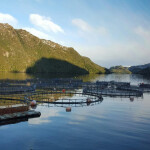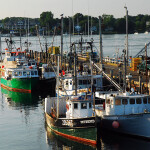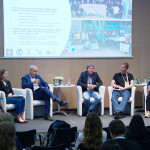Fishing, aquaculture, and fish processing have become big business in Ecuador, and seafood is currently the country’s fourth-largest export, generating an estimated USD 896 million (EUR 762.1 million) per year. This figure is expected to grow as Ecuador continues to develop its shrimp and tilapia aquaculture sectors.
Large pelagic species are the mainstay of the fishing industry, particularly the common dolphinfish, escolar, marlin, sailfish, tuna, and swordfish, along with sharks and rays. In particular, Ecuador has become a leading South American producer and exporter of tuna.
In a bold move that set it aside from other South American countries, in 2008, Ecuador became the first to recognize the rights of nature in its constitution. Nature is now acknowledged as having the right to exist, persist, maintain, and regenerate its vital cycles.
As a result, many of the country’s laws needed to be updated in line with its new constitution, including those for fisheries and aquaculture. These laws now meet international standards and embrace the need to protect local water supplies and reduce the seafood industry’s ecological footprint throughout the supply chain.
Fish processing plants were identified as posing one of the biggest threats to the environment, through their use and disposal of large volumes of wastewater. Treatment options are now a priority, to ensure that companies comply with regulations and contribute positively to the nation’s global, long-term trade balance.
Fluence, one of the biggest players in the international water treatment business, has just announced a USD 1.7 million (EUR 1.5 million) contract with fish processor Irotop to purify wastewater from its tuna and sardine processing and packing plants. The aim is to make the company’s activities more environmentally sustainable.
Last month, Fluence successfully commissioned a smart decentralized wastewater reuse treatment plant for Tadel, a fish rendering plant in Ecuador.
“We have recently won contracts in Ecuador, Italy, Brazil, and Argentina, which confirm Fluence’s leading position in delivering smart decentralized wastewater reuse solutions to customers in the international food and beverage production market,” Fluence CEO officer Henry J. Charrabé said.
He estimates the value of water and wastewater solutions in this sector to be around USD 6.1 billion (EUR 5.2 billion) – and growing at over six percent per year – and is eager to grow Fluence’s share of this market.
“We have developed a strong expertise in wastewater treatment applications, including innovative anaerobic digestion technology. We help our customers’ operations become more sustainable by reducing their reliance on external water and energy, and by recycling highly polluted effluents after treatment. Our smart solutions also produce substantial cost savings, resulting in a short pay back for our clients,” Charrabé. Said.
Fluence completed its first commission in Ecuador in 2016, when it upgraded a fish processing plant for the Eurofish Group, which supplies tinned tuna, sardines and mackerel to international markets.
“We added waste-to-energy technology to the plant’s capabilities, enabling Eurofish to meet national environmental standards, increase production, improve wastewater treatment quality, and reduce odors,” he said.
One of the main challenges was the need to build and commission the new facility without interrupting existing operations. This was no small feat since a complete renovation of the wastewater treatment plant was required. Previously, the facility used only a dissolved-air-flotation pre-treatment to clarify effluent before discharge, with resultant poor quality.
Charrabé explained that wastewater can be difficult to treat, because of high levels of organic and biological compounds, including nitrogen and denatured proteins.
“The Eurofish plant was the first time we had worked with wastewater from fish processing, but we had extensive experience in designing treatments for meat processors, and were able to use this to come up with the appropriate treatment process,” he said.
Eurofish has reduced its sludge waste volume by 75 percent since the new facility went online, reduced its wastewater treatment costs by 50 percent and its energy consumption by 35 to 40 percent.






